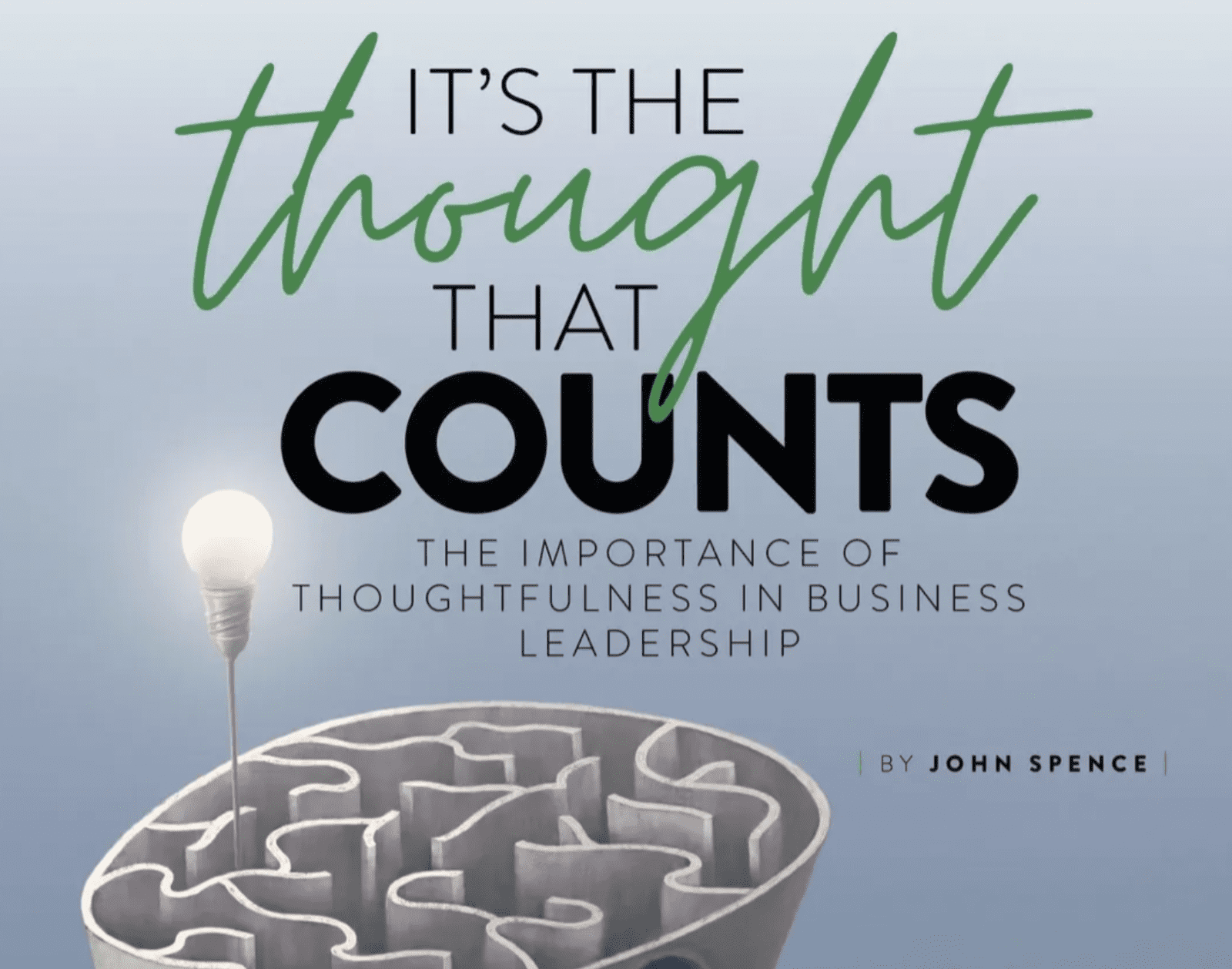
The Importance of Thoughtfulness in Business Leadership
By John Spence
An essential element of leadership is sound decision-making. This requires thoughtfulness. Taking the time to think things through carefully. Applying intellectual rigor. Unfortunately, many of us have been taught to make decisions in an ineffective way. Here are some things to consider when deciding what kind of decision maker you want to be.
Reacting vs. Responding
We admire decisive leaders and label leaders who seem to take too long to make a decision as indecisive and weak. We feel that strong leaders make decisions quickly. They are firm in their resolve. They understand the situation and can act with speed. This frame of mind creates a false sense of urgency.
The best decisions are made at the required pace. Certainly, some decisions need to be made immediately. But rarely is that the actual timeframe. Most decisions have a window of opportunity. If you can take a few more days to think things through and gather additional data, without impacting the quality of the decision, then why not take the time? Many hastily made poor decisions might have been good ones with just a little bit more thoughtfulness.
There’s More Than One Right Answer
Throughout our years in school, we are taught that if you want to get an “A” on the test, you must find the one correct answer. Only in mathematics, formal logic and some areas of physical sciences are there scenarios with a single correct answer. With everything else, there are shades of gray. Many decision makers get caught in the trap of attempting to find the one correct answer. This causes them to give up too early. Great decision makers look for the second right answer and the third right answer. It is typically the combination of these three ideas that generates the best decisions.
Probabilistic Thinking
An excellent tool for making good decisions is examining probabilities and impact. In a business situation, if a leader is faced with a decision that has a low probability of happening and the impact would be insignificant, this decision should be delegated away quickly. This is not worth the leader’s time.
In situations of high probability and low impact, the leader should delegate this as a learning opportunity. If something goes wrong the repercussions would be insignificant. This is how people learn from mistakes.
Where there is a low probability of something going wrong but a very high impact if it did, the leader should seek data and advice. This is the perfect situation for scenario planning. Investing time to examine multiple possible outcomes and their potential consequences. Then, create plans of action for the ones that seem most likely.
Finally, some situations have a high probability of happening and would have a significant negative impact. Owning a business in Florida brings a very high probability of a hurricane and a potentially catastrophic impact. This is where you create emergency plans.
With leadership comes the responsibility of making important decisions. Poor decisions are expensive. Thoughtful decisions are valuable.
John Spence Bio:
John Spence is a globally recognized business coach, leadership expert, keynote speaker and author. Among other accolades, he has been named by “Thinkers 360” as one of the Top 50 Global Thought Leaders and Influencers on Coaching. With a rich history as a CEO, lecturer at prestigious institutions and contributor to strategic partnerships, Spence is known for his engaging and impactful approach, leaving audiences with actionable insights derived from his extensive experience.



